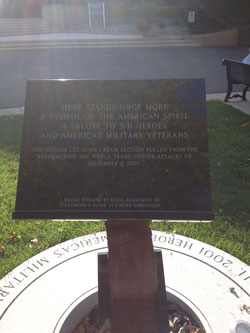Eleven years after the United States first began its military campaign in Afghanistan and nearly one year after the official end of combat operations in Iraq, there is finally a proverbial light at the end of the tunnel for America’s decade of fighting in the Middle East.
After the withdrawal of combat troops from Iraq in December of 2011, President Obama announced a similar drawdown of combat forces from Afghanistan to occur over the next two years, which will result in all American combat troops having been withdrawn from the country by the end of 2014. The departure of fighting forces from Afghanistan will signal the end of hostilities in the Middle East and will finally allow America the time to redouble its efforts domestically and address equally pressing concerns on the home front.
As anyone following the events concerning the Palestinian militant group Hamas and the State of Israel over the past two weeks will likely agree, the relative stability which now exists in Iraq and Afghanistan does little to ease tensions, in a region where civil, ideological, and territorial disputes occur side by side with multi-billion dollar business transactions.
The recent fighting largely centered in the disputed territory in and around the Gaza Strip, involved Hamas militants firing rockets into Israeli border towns as well as using improvised portable explosives to attack civilian targets such as commuter buses. After eight days of sporadic attacks by Hamas and largely defensive actions by Israeli forces, a cease-fire brokered in part by Egyptian President Mohamed Morsy has provided an end to fighting, but the deal is very fragile and may prove to only be a temporary solution. Even if the current cease-fire remains, it is likely that new conflicts will arise within the areas in and around the disputed Israeli and Palestinian territories given the long history of aggression between these two entities.
Dr. Joseph Patten, Chair of the Political Science and Sociology Department states that, “The Israeli- Palestinian conflict has been going on for nearly 100 years and actually links back to biblical times.”
The Middle East’s vast oil reserves naturally make the entire region critically important to the world and as any compromise to the security of the region’s oil output would have virtually immediate detrimental effects on the global economy.
Patten stated, “U.S. foreign policy has always attempted to find a balance between serving as a peace broker in the region as well as working to ensure a steady and inexpensive source of energy.” Any further conflict in the Middle East could cause disruptions to the flow of oil, thus driving crude prices skyward. Undoubtedly, this would place tremendous strain on an already fragile American economy and may cause a shift in America’s priorities from improving the country’s domestic affairs to once again committing troops to the Middle East in order to protect its oil interests.
Domestic concerns and uncertainties in the Middle East place the United States into a somewhat conflicted position. The $4 trillion cost of the Iraq War alone has taken financial resources away from the American economy and a case can be made that this spending contributed to the current economic slowdown. The loss of American life over the past 11 years’ conflicts has also made the American people increasingly war-weary and eager to see an end to fighting.
Although American interests in the Middle East will have to be protected for the foreseeable future, that does not necessarily mean that America will be ready to intervene in a hypothetical conflict in the region, if it such a situation involved an accepted ally such as Israel. Furthermore, it may not be illogical to reason that, given its need to recover from recent conflicts, the United States should not intervene at all in international disputes.
Aileen Nuñez, a sophomore studying social work and political science believes that “America should not intervene in international conflicts for the time being; there are more important concerns to be addressed at home.” However, since Israel is an ally and effectively an American protectorate, Nuñez added that situations involving allies “are different” provided that there be a mutual understanding between America and its allies that America expects similar support in any future American-led combat operations.
If America is not ready to provide military support in any conflicts which may be forthcoming, what then, if anything, can be done to promote peace and stability in the volatile region, particularly with regard to the Israeli-Palestinian conflict?
Dr. Charles Cotton of the Political Science Department favors a revisit of tactics already tried, stating that the “1967 Israeli borders should be restored.” Nothing short of a resolution from the United Nations would be able to reinstate these boundaries, but such an action would greatly reduce the pressure on the United States to take action. Although a controversial solution, the reinstatement of the 1967 boundaries would at very least draw concrete lines in the sand between Israeli and Palestinian factions, which may serve to reduce the current tensions with regard to territorial disputes between the two entities.
America has dedicated so much in terms of resources and lives to its military involvement in the Middle East over the past 11years. Although an official end to fighting is now in sight in terms of the presence of combat troops in Afghanistan, new tensions concerning America’s closest ally in the region may yet send American troops into the area once more. For the moment, there are no definitive answers to be had, but as with virtually all other matters past and present, time will be the ultimate judge.


